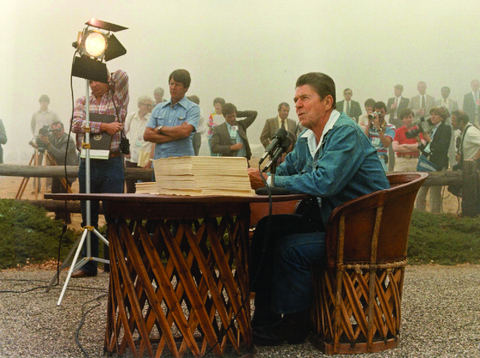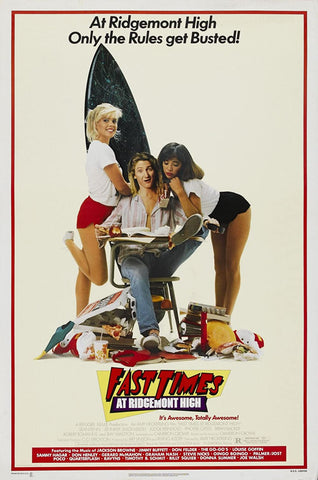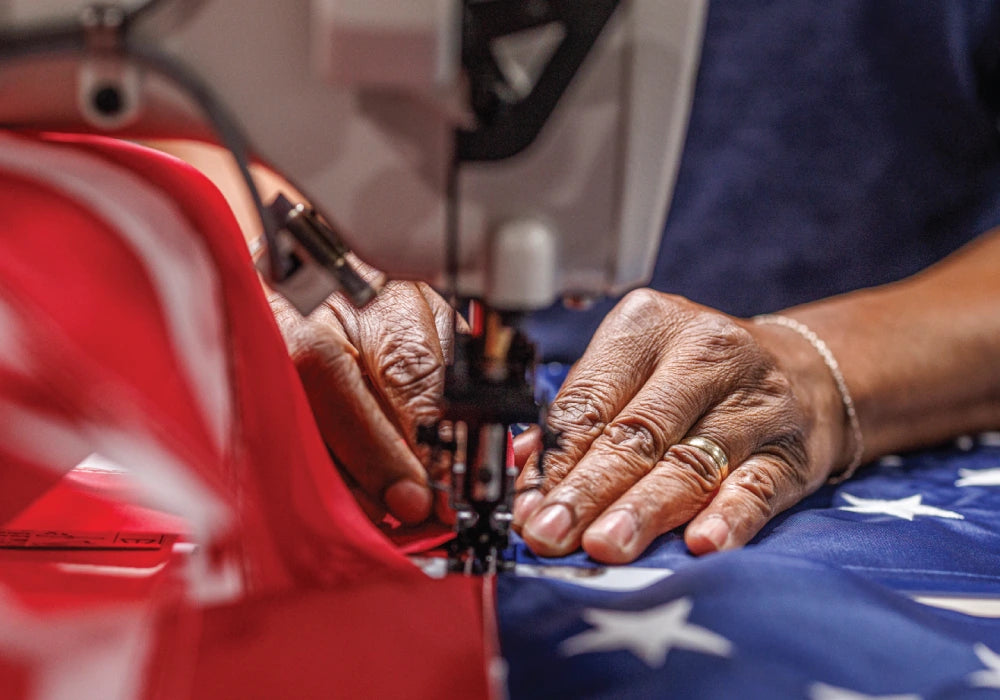August 13

1981
At his home in CA, Ronald Reagan signed the Economic Recovery Tax Act, a historic package of tax and budget reductions that set the tone for his administration’s overall economic policy. During his campaign for the White House in 1980, Reagan argued on behalf of “supply-side economics,” the theory of using tax cuts as incentives for individuals and businesses to work and produce goods (supply) rather than as an incentive for consumers to buy goods (demand). His tax program undoubtedly set in motion powerful forces of change that would result in both short- and long-term economic gainsCritics of so-called “Reaganomics” point out that his tax cuts and the effects of steady economic growth disproportionately benefitted the wealthy, and vastly increased the gap between the nation’s rich and poor.

1982
The teenage coming-of-age comedy Fast Times at Ridgemont High opened in theaters around the United States. Written by Cameron Crowe and directed by Amy Heckerling, the film follows a year in the life of high school students and their teachers. The ensemble cast featured the (then relatively unknown) future A-list actors Sean Penn, Nicolas Cage and Forest Whitaker. Fast Times at Ridgemont High marked Cameron Crowe’s feature-film debut as a writer and was based on a 1981 book of the same name that he penned after going undercover to research it at a San Diego high school. His other films include Jerry Maguire, Almost Famous, Vanilla Sky, Elizabethtown, Aloha and more.

1995
Former New York Yankees star Mickey Mantle dies of liver cancer at the age of 63. While “The Mick” patrolled center field and batted clean-up between 1951 and 1968, the Yankees won 12 American League pennants and seven World Series championships. Mantle made his debut for the Yankees in 1951 at age 19, playing right field alongside aging center fielder Joe DiMaggio. After years of brilliance, Mantle’s career began to decline by 1967, and he was forced to move to first base. The next season would be his last. Mantle was elected to the Baseball Hall of Fame in 1974 in his first year of eligibility. At the time of his death Mantle held many of the records for World Series play, including most home runs (18), most RBIs (40) and most runs
August 14

1935
President Franklin D. Roosevelt signed into law the Social Security Act, which guaranteed an income for the unemployed and retirees. FDR commended Congress for what he considered to be a “patriotic” act. n his public statement that day, FDR expressed concern for “young people [who] have come to wonder what would be their lot when they came to old age” as well as those who had employment but no job security. Although he acknowledged that “we can never insure one hundred percent of the population against one hundred percent of the hazards and vicissitudes of life,” he hoped the act would prevent senior citizens from ending up impoverished.


1995
Shannon Faulkner became the first female cadet in the 156 year history of South Carolina’s state military college, The Citadel. Her battle to attend the all-male school lasted two years, but her presence was met with intense resistance, reportedly including death threats. She only lasted about a week and many thought women could not handle the physical pressures of a military academy. The following year, the U.S. Supreme Court ordered all-male, state-supported Virginia Military Institute to admit women and The Citadel bowed to the rule of law. Today about 10 percent of the Citadel's cadets are female, and the school annually celebrates Women’s History Month.

2003
A major outage knocked out power across the eastern US and parts of Canada. Beginning at 4:10 p.m. ET, 21 power plants shut down in just three minutes. 50 million people were affected, including residents of New York, Cleveland and Detroit. Although power companies were able to resume some service in as little as two hours, power remained off in other places for more than a day. The outage stopped trains and elevators, and disrupted everything from cellular telephone service to operations at hospitals to traffic at airports. an investigation by a joint U.S.-Canada task force traced the problem back to an Ohio company, FirstEnergy Corporation. When the company’s EastLake plant shut down unexpectedly after overgrown trees came into contact with a power line, it triggered a series of problems that led to a chain reaction of outages.
August 15

1780
American Lieutenant Colonel Francis Marion, the “Swamp Fox,” and his irregular cavalry force of 250 routed a party of Loyalists at Port’s Ferry, South Carolina. Marion, a mere 5ft tall, won fame and the “Swamp Fox” moniker for his ability to strike and then quickly retreat without a trace into the South Carolina swamps. Famed as the only senior Continental officer to escape the British following the fall of Charleston on May 12, 1780, his military strategy is considered an 18th-century example of guerilla warfare and served as partial inspiration for Mel Gibson’s character in the film The Patriot (2000).

The Woodstock music festival opened in the upstate New York town of Bethel. Promoters John Roberts, Joel Rosenman, Artie Kornfield and Michael Lang, despite their relative inexperience, managed to sign a roster of top acts, including Jefferson Airplane, The Who, Grateful Dead, Sly and the Family Stone, Janis Joplin, Jimi Hendrix, Creedence Clearwater Revival and many more. Though Woodstock had left its promoters nearly bankrupt, their ownership of the film and recording rights more than compensated for the losses after the release of a hit documentary film in 1970. Later music festivals inspired by Woodstock’s success failed to live up to its standard, and the festival still stands for many as an example of America’s 1960s youth counterculture at its best.

1914
The American-built waterway across the Isthmus of Panama, connecting the Atlantic and Pacific oceans, was inaugurated with the passage of the U.S. vessel Ancon. The rush of settlers to California and Oregon in the mid 19th century was the initial impetus of the U.S. desire to build an artificial waterway across Central America. By the turn of the century, sole possession of the isthmian canal became imperative to the United States, which had acquired an overseas empire at the end of the Spanish-American War and sought the ability to move warships and commerce quickly between the Atlantic and Pacific oceans. In 1977 U.S. President Jimmy Carter and Panamanian dictator Omar Torrijos signed a treaty to turn over the canal to Panama by the end of the century. A peaceful transfer occurred at noon on December 31, 1999.
August 16
1904
New York City and the Vanderbilts began building Grand Central Station. The building was the largest construction project in New York’s history up to that time. It’s 70-acre compound had 32 miles of track, which fed into 46 tracks and 30 passenger platforms. A technological marvel, it was one of the world’s first all-electric buildings.

1954
"Sports Illustrated," a new magazine dedicated to covering sports, appeared on American newsstands. The new magazine was the brainchild of Henry, Luce, creator of Time magazine. It was considered a joke by some and would not make money for most of its first decade. The magazine eventually became the undisputed leader in American sports media, the sporting magazine of record and one of the most recognizable media brands in the world. Sports Illustrated started making a profit in the 1960s and by the 1970s it became a go-to source for American sports news, retaining its strong brand and reputation for sterling journalism well into the age of ESPN and digital media.

1977
Elvis Presley, "The King of Rock and Roll," died of a heart attack in Memphis, Tennessee at 42. His death brought legions of mourning fans to Graceland, his mansion in Memphis. Doctors said he died of a heart attack, likely brought on by his addiction to prescription barbiturates. By the mid 1970s, Elvis was in declining physical and mental health. In the last two years of his life, he made erratic stage appearances and lived nearly as a recluse. He was buried on the grounds of Graceland, which continues to attract fans and has been turned into a highly successful tourist attraction.
August 17

1978
The Double Eagle II completed the first transatlantic balloon flight when it lands in a barley field near Paris, 137 hours after lifting off from Presque Isle, Maine. The helium-filed balloon was piloted by Ben Abruzzo, Maxie Anderson and Larry Newman and flew 3,233 miles in the six-day odyssey. Human flight first became a reality in the early 1780s with the successful development of the hot-air balloon by French paper-making brothers Joseph and Etienne Montgolfier. Soon balloons were being filled with lighter-than-air gas, such as helium or hydrogen, to provide buoyancy. In 2002, American adventurer Steve Fossett became the first man in history to fly around the world solo in a hot-air balloon.

1998
President Bill Clinton became the first sitting president to testify before the Office of Independent Counsel as the subject of a grand-jury investigation. The testimony came after a four-year investigation into Clinton and his wife Hillary's alleged involvement in several scandals, including accusations of sexual harassment, potentially illegal real-estate deals and suspected “cronyism” involved in the firing of White House travel-agency personnel. The independent prosecutor, Kenneth Starr, then uncovered an affair between Clinton and a White House intern named Monica Lewinsky. When questioned about the affair, Clinton denied it, which led Starr to charge the president with perjury and obstruction of justice, which in turn prompted his testimony on August 17.

2008
The US team of Michael Phelps, Aaron Peirsol, Brendan Hansen & Jason Lezak won the 4 x 100m men's medley relay at the Beijing Olympics. They set a new world record time of 3:29.34. This was Phelps' 8th gold medal of the Games, breaking Mark Spitz's 1972 record of seven. He would compete in five Summer Olympics, retiring after the 2016 Rio de Janeiro Summer Olympics. Michael Phelp's 23 Olympic gold medals is the most won by a single person. He is considered the greatest swimmer of all time and arguably the greatest athlete of all time.
August 18

1590
John White, the governor of the Roanoke Island colony in present-day North Carolina, returned from a supply-trip to England to find the settlement deserted. White and his men found no trace of the 100 or so colonists he left behind, and there was no sign of violence. The colony continues to be known as "The Lost Colony" and only theories remain to what actually happened to the colonists. In 1998, archaeologists studying tree-ring data from Virginia found that extreme drought conditions persisted between 1587 and 1589. These conditions undoubtedly contributed to the demise of the so-called Lost Colony, but where the settlers went after they left Roanoke remains a mystery. One theory has them being absorbed into a Native American tribe known as the Croatans.

1920
The 19th amendment, which guarantees all American women the right to vote, is ratified. Achieving this milestone required a lengthy and difficult struggle; victory took decades of agitation and protest. Beginning in the mid-19th century, several generations of woman suffrage supporters lectured, wrote, marched, lobbied, and practiced civil disobedience to achieve what many Americans considered a radical change of the Constitution. Few early supporters lived to see final victory in 1920. Despite the ratification of the amendment and the decades-long contributions of Black women to achieve suffrage, poll taxes, local laws and other restrictions continued to block women—and men—of color from voting. It would take more than 40 years for all women to achieve voting equality.

1992
Celebrated Boston Celtics forward and future multi-time Hall of Famer Larry Bird retired. Bird entered the NBA in 1979 and had an immediate impact on the league, winning Rookie of the Year. The Celtics would win NBA titles in '81, '84 and '86, with Byrd winning NBA MVP '85-'86. As his career progressed, though, Bird began to suffer from chronic back pain that, by the 1990s, limited both his playing time and his effectiveness. After winning gold in Barcelona with The Dream Team, Bird retired. He remained with the Celtics as a special assistant until becoming the Pacers head coach in 1997. He was elected to the Hall of Fame in 1998, the same year he was named NBA Coach of the Year.
August 19

1812
The U.S. Navy frigate USS Constitution defeated the British frigate Guerrière in a furious engagement off the coast of Nova Scotia during the War of 1812. Witnesses claimed that the British shot merely bounced off the Constitution‘s sides, as if the ship were made of iron rather than wood. By the war’s end, “Old Ironsides” destroyed or captured seven more British ships. The success of the USS Constitution against the supposedly invincible Royal Navy provided a tremendous boost in morale for the young American republic. After the war, Old Ironsides served as the flagship of the navy’s Mediterranean squadron and in 1828 was laid up in Boston. In 1855, the Constitution retired from active military service, but the famous vessel continued to serve the United States, first as a training ship and later as a touring national landmark.

1909
The first race was held at the Indianapolis Motor Speedway, now the home of the world’s most famous motor racing competition, the Indianapolis 500. Built on 328 acres of farmland five miles northwest of Indianapolis, Indiana, the speedway was started by local businessmen as a testing facility for Indiana’s growing automobile industry. Since 1911, the Indianapolis 500 has been held every year, with the exception of 1917-18 and 1942-45, when the United States was involved in the two world wars. With an average crowd of 400,000, the Indy 500 is the best-attended event in U.S. sports. The last of the speedway’s original bricks were covered in 1961, except for a three-foot line of bricks left exposed at the start-finish line as a nostalgic reminder of the track’s history.

1964
More than six months after taking the East Coast by storm during their historic television appearances on The Ed Sullivan Show, the Beatles kicked off first U.S. tour at San Francisco’s Cow Palace. Within the first few seconds of the first song that night, at least one journalist had been trampled and a female fan had broken a leg in the building pandemonium. Though John, Paul, George and Ringo were uninjured, they left the Cow Palace that night by ambulance after their limousine was swarmed by berserk fans. It was a scene that would become familiar to them as they continued on their first historic tour of America in the months ahead.




